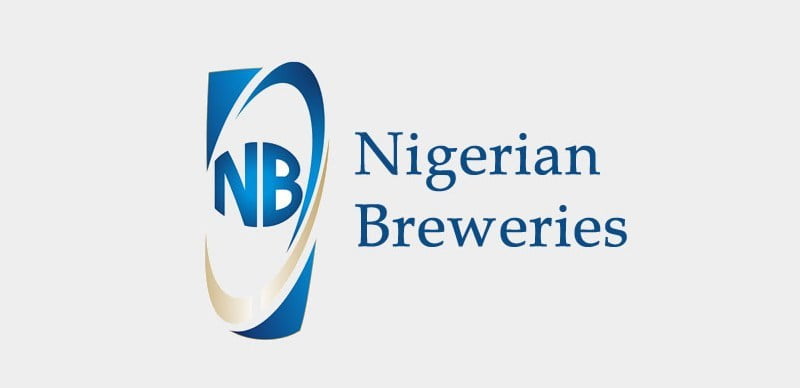Nigerian Breweries Plc has announced a revenue of N274.03 billion for the first half of the year ended June 30, 2022.
The company made the disclosure in a statement signed by its Secretary/Legal Director, Mr Uaboi Agbebaku, on Sunday in Lagos.
Agbebaku said that the revenue represented a growth of 31 per cent when compared with N209.22 billion posted in the preceding period of 2021.
He said company also recorded a profit after tax of N19.08 billion against N7.86 billion in the corresponding period of 2021, an increase of 142.8 per cent.
Agbebaku said that basic earning per share stood at 237k as against 97k recorded in the comparative period.
He said the company’s increase in profit was driven mainly by top line growth resulting from its pricing strategy and better mix.
Agbebaku said that further analysis of the results revealed that cost of sales increased by 18.3 per cent to N155.35 billion from N131.34 billion in the corresponding period.
He added that marketing, distribution and administrative expenses rose by 44.6 per cent to N84.45 billion from N58.42 billion in 2021.
These expenses, Agbebaku said, were driven by the increase in commercial activities post COVID-19, rising diesel prices and higher wages arising from collective labour agreements.
He added that though interest expenses were lower, the net finance cost was higher due to foreign exchange losses arising from a higher cost of meeting foreign obligations to overseas partners.
“In spite of these challenges, our business continues to build momentum and deliver consistently profitable growth even in the context of a very challenging operating environment.
“Our best-in-class portfolio of brands provides a unique platform that positions us well to lead and grow the beer and malt category and drive superior long-term value creation,” he said.
He expressed the company’s commitment to continuously evaluate its financial position and business performance to ensure a strong balance sheet, while remaining dynamic in its response to operational challenges vis-à-vis the economy.
“In line with our certification and status as a great place to work company, we would also continue to prioritise the health, safety, and welfare of employees and partners,” he said. (NAN)







2 Comments